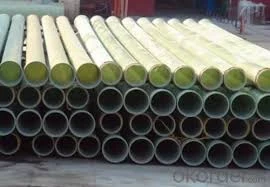
-
 Afrikaans
Afrikaans -
 Albanian
Albanian -
 Amharic
Amharic -
 Arabic
Arabic -
 Armenian
Armenian -
 Azerbaijani
Azerbaijani -
 Basque
Basque -
 Belarusian
Belarusian -
 Bengali
Bengali -
 Bosnian
Bosnian -
 Bulgarian
Bulgarian -
 Catalan
Catalan -
 Cebuano
Cebuano -
 China
China -
 China (Taiwan)
China (Taiwan) -
 Corsican
Corsican -
 Croatian
Croatian -
 Czech
Czech -
 Danish
Danish -
 Dutch
Dutch -
 English
English -
 Esperanto
Esperanto -
 Estonian
Estonian -
 Finnish
Finnish -
 French
French -
 Frisian
Frisian -
 Galician
Galician -
 Georgian
Georgian -
 German
German -
 Greek
Greek -
 Gujarati
Gujarati -
 Haitian Creole
Haitian Creole -
 hausa
hausa -
 hawaiian
hawaiian -
 Hebrew
Hebrew -
 Hindi
Hindi -
 Miao
Miao -
 Hungarian
Hungarian -
 Icelandic
Icelandic -
 igbo
igbo -
 Indonesian
Indonesian -
 irish
irish -
 Italian
Italian -
 Japanese
Japanese -
 Javanese
Javanese -
 Kannada
Kannada -
 kazakh
kazakh -
 Khmer
Khmer -
 Rwandese
Rwandese -
 Korean
Korean -
 Kurdish
Kurdish -
 Kyrgyz
Kyrgyz -
 Lao
Lao -
 Latin
Latin -
 Latvian
Latvian -
 Lithuanian
Lithuanian -
 Luxembourgish
Luxembourgish -
 Macedonian
Macedonian -
 Malgashi
Malgashi -
 Malay
Malay -
 Malayalam
Malayalam -
 Maltese
Maltese -
 Maori
Maori -
 Marathi
Marathi -
 Mongolian
Mongolian -
 Myanmar
Myanmar -
 Nepali
Nepali -
 Norwegian
Norwegian -
 Norwegian
Norwegian -
 Occitan
Occitan -
 Pashto
Pashto -
 Persian
Persian -
 Polish
Polish -
 Portuguese
Portuguese -
 Punjabi
Punjabi -
 Romanian
Romanian -
 Russian
Russian -
 Samoan
Samoan -
 Scottish Gaelic
Scottish Gaelic -
 Serbian
Serbian -
 Sesotho
Sesotho -
 Shona
Shona -
 Sindhi
Sindhi -
 Sinhala
Sinhala -
 Slovak
Slovak -
 Slovenian
Slovenian -
 Somali
Somali -
 Spanish
Spanish -
 Sundanese
Sundanese -
 Swahili
Swahili -
 Swedish
Swedish -
 Tagalog
Tagalog -
 Tajik
Tajik -
 Tamil
Tamil -
 Tatar
Tatar -
 Telugu
Telugu -
 Thai
Thai -
 Turkish
Turkish -
 Turkmen
Turkmen -
 Ukrainian
Ukrainian -
 Urdu
Urdu -
 Uighur
Uighur -
 Uzbek
Uzbek -
 Vietnamese
Vietnamese -
 Welsh
Welsh -
 Bantu
Bantu -
 Yiddish
Yiddish -
 Yoruba
Yoruba -
 Zulu
Zulu
fiberglass sewer pipe alternative.
Exploring Fiberglass Sewer Pipe Alternatives
As the infrastructure of our cities ages, the need for durable, cost-effective, and safe sewer systems becomes increasingly urgent. For decades, traditional materials like clay and PVC have dominated the market; however, innovations in technology have led to the emergence of fiberglass sewer pipes as a compelling alternative. This article explores the benefits and potential applications of fiberglass sewer pipes and how they can transform our approach to sewer system construction and maintenance.
Durability and Longevity
One of the primary advantages of fiberglass sewer pipes is their exceptional durability. Unlike traditional materials, fiberglass is resistant to corrosion, chemicals, and extreme temperatures. This resilience means that fiberglass pipes can withstand the pressures of both soil conditions and the transported materials, leading to fewer failures and repairs over time. As a result, infrastructure projects can experience lower lifecycle costs due to reduced maintenance and replacement needs.
Weight and Ease of Installation
Fiberglass pipes are significantly lighter than their concrete or clay counterparts, making transportation and installation easier. This lightweight nature allows for simpler handling and reduced labor costs. Additionally, long lengths of fiberglass pipes are often available, which can minimize the number of joints needed in a sewer line. Fewer joints mean a lower likelihood of leaks and structural weaknesses, contributing further to the overall integrity of the sewer system.
fiberglass sewer pipe alternative.

Environmental Benefits
The environmental footprint of fiberglass sewer pipes is another appealing factor. The materials used in fiberglass production can be sourced sustainably, and the manufacturing process emits fewer pollutants compared to traditional pipe materials. Moreover, fiberglass's longevity and reduced failure rates mean less waste generated from repairs and replacements, promoting a more sustainable approach to infrastructure development.
Versatility in Application
Fiberglass sewer pipes are versatile and can be adapted for a range of applications, from residential to municipal projects. Their resistance to chemicals makes them ideal for industrial waste management systems, while their structural integrity lends itself to being used in challenging soil conditions. As cities continue to grow and evolve, having adaptable materials like fiberglass pipes can support diverse and expanding infrastructure needs.
Conclusion
In summary, fiberglass sewer pipes present a promising alternative to traditional materials, offering enhanced durability, ease of installation, environmental benefits, and versatility. As the demand for innovative infrastructure solutions rises, exploring options like fiberglass could play a crucial role in the design and construction of sustainable sewer systems. By investing in advanced materials today, we can ensure that our sewer infrastructure is robust enough to handle the challenges of tomorrow.









